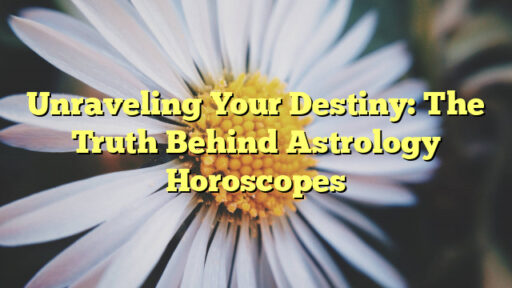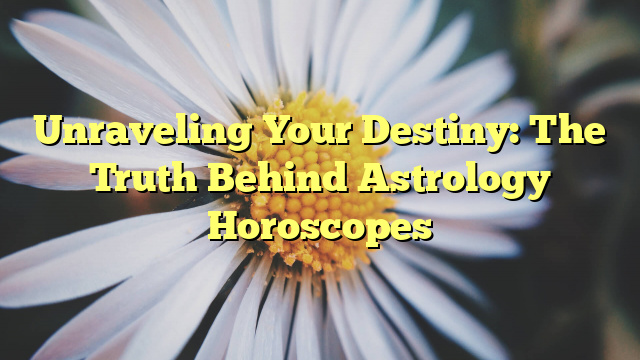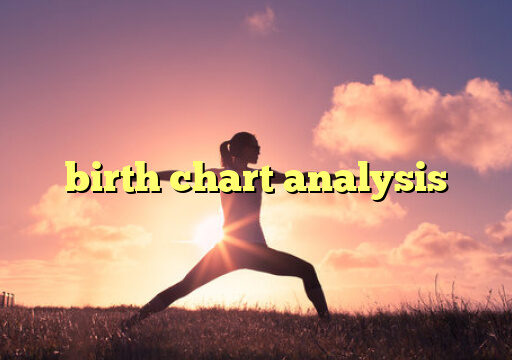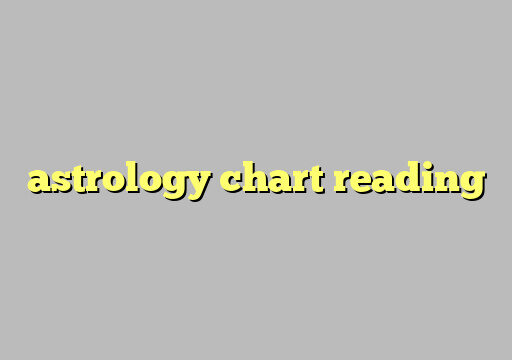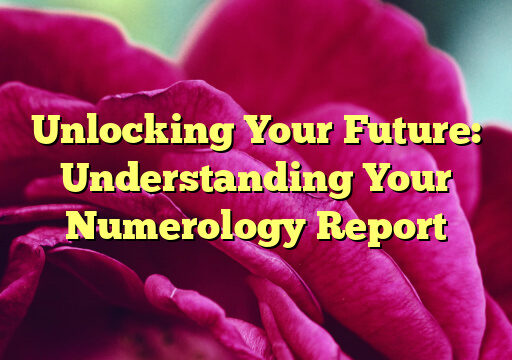Astrology has been a subject of fascination for centuries, with many people turning to their horoscopes to gain insight into their personalities, relationships, and future prospects. But what is the truth behind astrology horoscopes? Are they really a reliable guide to our destinies, or are they simply a form of entertainment?
At the heart of astrology is the idea that the positions and movements of celestial bodies can influence human affairs. Astrologers believe that the alignment of the stars and planets at the time of a person's birth can determine their personality traits, strengths, and weaknesses. By studying these celestial patterns, astrologers create horoscopes that offer predictions about a person's life path, relationships, and career.
Many people find comfort and guidance in their horoscopes, turning to them for insights into their daily lives and decision-making. But while astrology has its devoted followers, skeptics argue that there is no scientific basis for the claims made by astrologers. Critics point out that the positions of the stars and planets have no physical influence on human behavior, and that horoscopes are little more than vague, generalized statements that could apply to anyone.
So, where does the truth lie? Is astrology a legitimate tool for self-discovery and guidance, or is it a pseudoscience that relies on coincidence and wishful thinking? The answer may lie somewhere in between.
The Science Behind Astrology
While astrology may not have a scientific basis in the traditional sense, there is some evidence to suggest that the positions of the stars and planets can have an impact on human behavior. For example, studies have shown that the seasons in which people are born can influence their personality traits and even their risk of certain health conditions.
Furthermore, many ancient civilizations, including the Babylonians and the Egyptians, practiced astrology as a form of divination and guidance. They believed that the movements of the celestial bodies were interconnected with human events and could offer insight into the future.
Interpreting Your Horoscope
When it comes to interpreting your horoscope, it's important to approach it with an open mind and a healthy dose of skepticism. While your horoscope may offer valuable insights into your personality and tendencies, it's not set in stone. You have the power to shape your own destiny and make choices that can lead you down different paths.
Astrology should be viewed as a tool for self-reflection and personal growth, rather than a strict guide to your future. By using your horoscope as a starting point for self-exploration, you can gain a better understanding of yourself and your motivations, and make more informed decisions about your life.
Conclusion
Astrology horoscopes may not have a solid scientific foundation, but they can still offer valuable insights into our personalities and tendencies. Whether you're a skeptic or a believer, there is something to be gained from exploring the mysteries of the stars and planets.
Ultimately, astrology should be viewed as a guide, rather than a rulebook. By approaching your horoscope with an open mind and a critical eye, you can unravel the secrets of your destiny and discover new paths for personal growth and self-discovery.
FAQs
Are horoscopes really accurate?
While some people swear by the accuracy of their horoscopes, others dismiss them as mere coincidences. The truth is that the accuracy of horoscopes can vary greatly depending on the skill of the astrologer and the individual's willingness to interpret the information in a meaningful way.
Can astrology predict the future?
Astrology is not a crystal ball that can predict the future with certainty. Instead, it offers insights into potential paths and tendencies based on the positions of the stars and planets at the time of a person's birth. The future is ultimately shaped by our own choices and actions.
Should I base important decisions on my horoscope?
While your horoscope can offer valuable insights and guidance, it's important not to rely solely on it when making important decisions. It's always best to consider a variety of factors, including your own intuition and reasoning, before making a choice that could impact your life.
Unlock The Secrets – Click Here